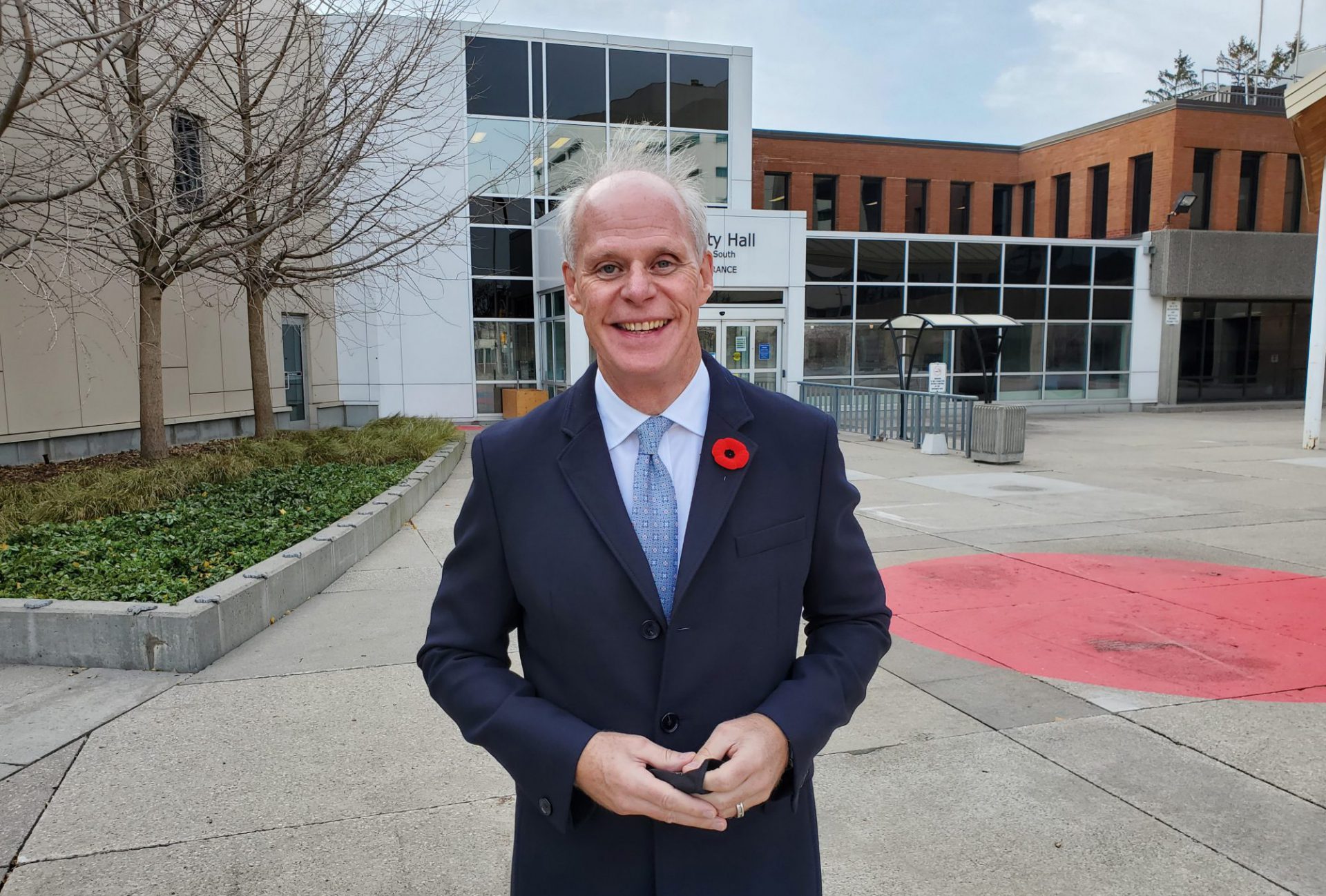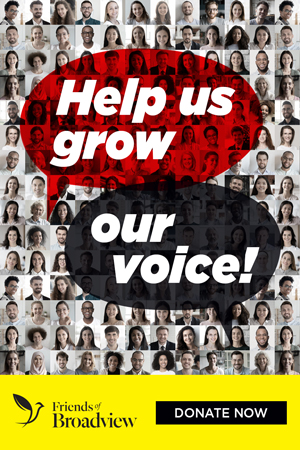As the homelessness population surges in a small city east of Toronto and the opioid crisis continues, a new pilot project aims to help those who are unhoused or insecurely housed using the familiar refugee sponsorship model.
Driven by Oshawa Mayor Dan Carter, whose innovative approach to this issue is shaped by his own experience with homelessness and addiction, the Spirit of Service Sponsorship Program is currently sponsoring two men and two sisters.
Raised in foster care, Carter struggled with addiction starting in his teenage years and began his journey to recovery at the age of 31.
“Because of my background as a recovering alcoholic and drug addict and someone who has experienced being unsheltered and living without supports, I’m very committed to finding solutions to complex problems,” he says. The hope, he adds, is that those who come out of the program will ultimately serve as ambassadors, educating the public about the homelessness crisis.
The project pairs homeless people with sponsors who accompany them through the process of finding housing, employment, and building healthy relationships. Its launch earlier this month is the culmination of two years of work by a coalition of faith leaders, social service agencies, and government and university partners.
“I’ve been fortunate throughout my ministry career to be involved in a number of community outreach projects. I’ve never been in anything quite like this,” says Rev. Christopher White, minister of Oshawa’s Kedron United and co-chair of the program’s executive team. The sponsorship group consists of three teams of five people, and of those, four are members of his small congregation. Other faith communities are also involved: “We have representatives from the evangelical community,” says White, “and one of our team leads is Muslim; we have a Sikh on our steering committee.”
More on Broadview:
- Veterans’ House aims to serve those who have already served
- Project to build tiny homes for Toronto’s homeless under threat
- Mobile palliative care services bring support to Canada’s most vulnerable
The program draws inspiration from White’s experience with Syrian refugee sponsorship and is, as far as he knows, the first in Canada to try to combat homelessness through an initiative modelled after the refugee sponsorship program.
It includes co-creating a plan with sponsored individuals that asks them about what they want for the next stage of their life and the support they need to get there. For one of the sponsored men, that means being equipped with basic life skills. His sponsor recently took him grocery shopping, and for the first time in his life, he was able to purchase the items he needed.
But the benefits are mutual, with sponsors feeling that their lives are enriched by the relationships formed. For Karen Charpentier, who attends Kedron United, involvement has also meant a deepening understanding of what life is like for the homeless people in her community. She was confounded, she says, when she learned that one man had been living in his truck since January. “It astounded me,” she says, “I don’t think any Canadian could agree that it’s right.”
Integral to the success of the program is relationship building. “We’re surrounding people with a community of support,” White says. “Our belief is that these relationships will grow and develop over the course of the next 12 to 18 months and will go much farther beyond the actual sponsorship time itself.” He adds that the program isn’t intended as a one-size-fits-all solution, but as one tool in an arsenal of municipal approaches to the homelessness crisis — one that could potentially serve as a template that other jurisdictions could replicate.
The project exists alongside a whole range of new experiments that the city is spearheading under Carter’s leadership. “We’ve created paramedic outreach teams, welcoming streets, supportive housing programs — a whole range of different ideas and concepts,” says Carter. “We’re trying unique approaches to very complex issues.”
For the program’s creators, it is way to live out a civic responsibility to care for others in the community. “These are not homeless people — these are someone’s son, and someone’s daughter, someone’s brother, and someone’s sister,” White says. “These are people with stories who deserve to be treated with dignity.”
***
Julie McGonegal is a writer and editor in Barrie, Ont.
We hope you found this Broadview article engaging.
Our team is working hard to bring you more independent, award-winning journalism. But Broadview is a nonprofit and these are tough times for magazines. Please consider supporting our work. There are a number of ways to do so:
- Subscribe to our magazine and you’ll receive intelligent, timely stories and perspectives delivered to your home 10 times a year.
- Donate to our Friends Fund.
- Give the gift of Broadview to someone special in your life and make a difference!
Thank you for being such wonderful readers.
Jocelyn Bell
Editor/Publisher


Comments